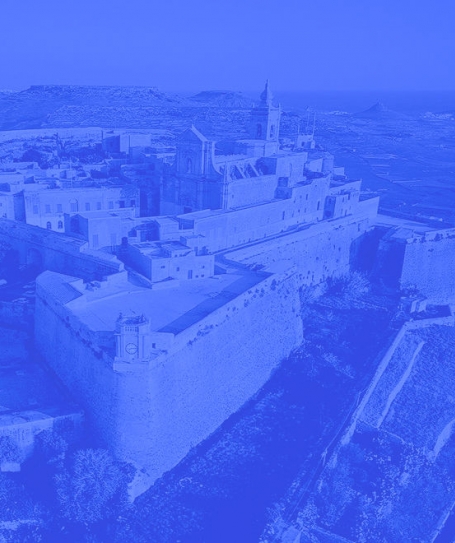Government Subsidies Fuelling Growth and Expansion
In May 2016, SAP announced the opening of its new office in Casablanca, Morocco. This followed the news of an announcement, the previous December, of the opening of a new SAP office in Luanda, Angola. Both announcements perhaps went unnoticed in the general software tech sector 'noise' but both serve as further evidence of SAP's commitment to driving Digital Transformation on the African continent.
On the subject of driving Digital Transformation, the biggest issue encountered by most companies, even in highly developed countries, is one of lack of interest. Until very recently, the African region has been regarded as a region where older solutions and limited capacity for investment go hand in hand.
However, some areas in Africa are now thriving and enjoying regional growth and expansion off the back of major infrastructure investments, made over the past decade to facilitate the creation of BPO services.
Top quality staff at lower cost than western europe
Morocco is one such area. I have several clients who have opened offices in Morocco, all of whom are excited about the opportunity to hire top quality people with academic degrees, including Information Sciences, at a significantly lower cost than in Western European countries. Morocco has been able to cultivate this opportunity over last decade due to the following factors:
- Geographical and cultural proximity
- Competitive costs
- Growing number of well-trained human resources
- Best infrastructures for Offshoring in Africa (Gartner 2011)
- Major Government subsidies
- Stable country, both politically and economically
- Improving personal data protection system
- Access to fast growing, local and regional markets; Casablanca, future hub for North-West Africa
More than 50% of all French IT services companies have a presence in Morocco, where almost 60,000 people have found employment in this sector. Morocco has more than 70,000 kilometers of high speed submarine cables connecting it to Western Europe, making it possibly the only viable country for western european companies who want to expand their operations overseas.
SAP clearly understands the situation and is not simply looking to the region as a low cost centre but, more importantly, as a new, revenue-generating region to facilitate growth. All the leading Banks, Insurance companies and Telco’s, plus several large multinationals such as P&G, Nestlé, Unilever as well as industry giants like Maersk, Bayer and Siemens have established their North African and Sub-Sahara region sales & marketing in Morocco. By serving their large, Morocco-based clients, they will naturally follow these clients in any expansion across Africa.
Industry giants are well-established in Africa
Typically, people are somewhat sceptical and question the logic of making investments in Africa, as they don't generally regard it as a region for further international expansion. Obviously, there are risks involved but that is the case when entering any new region. According to a study from E&Y, in order to begin operations successfully, foreign companies must work with local partners or acquire a local company, which will add invaluable local knowledge and resources as well as securing a strong network for your business. In addition, it is essential to invest in developing local employees to align them with overall corporate strategy and goals. It is likely this may not be an overnight success and therefore, every company considering moving into this region should start with a long-term strategy.
Some examples of companies that have been successful in Africa, are:
- Orange, now present in 19 countries across Africa and generating more than $6B in revenues for this region.
- Airtel, mobile services covering all Francophone countries, plus South-Africa, generating more than $13B in revenue.
- Dangote Group, large manufacturer, investing more than $2,5B in expansion in North Africa.
Political stability: not a barrier, according to Ernst &Young study
Political stability in Francophone/North African countries is often considered one of the larger barriers to entry. The Mo Ibrahim index, a framework that evaluates governance and leadership in African states, ranks FSSA countries at an average of 39 of 51 countries. These countries have seen remarkable improvements in ranking since 2006 and continue to show dynamic and constant improvements.
Ensuring that these organizations have a clear understanding of the strategic objectives of government, and aligning these with those of the organizations’ commercial interests, will help mitigate political risk. Through managing political risk, organizations will be able to take advantage of the ample opportunities available.
Foreign investors forging local partnerships - a mutually beneficial union
Doing business in a foreign country is fraught by a host of risks that can be avoided with a better understanding of the local environment, its culture and customs. Local partners can provide support and guidance in this regard and will be able to assist with strategic execution, risk management, relationship-building and identifying opportunities. Relationships between local partners and foreign investors should be a harmonious and mutually beneficial; local partners can provide invaluable knowledge of the market and business environment, while foreign investors offer a much-needed injection of capital, corporate experience and the creation of jobs, all of which can also assist in sustaining existing local businesses.
Cultural and language barriers - resolvable issues
Experience shows that language is not a barrier to entry for organizations wanting to do business in Francophone/North Africa. Rather, the business environment, political stability, transparency and the ongoing fight against corruption, pose greater obstacles for organizations to overcome. An understanding of local culture and the operating environment smooths the way for business. Local partnerships and an open approach to doing business are key to ensuring this is possible. The African elite of the business world in these countries are fluent in at least two working languages (English and French), mostly graduating from Europe, Canada and America.
Time is of the essence!
Francophone/North Africa is an emerging and exciting region in which to do business. Investors from around the world are looking to Africa to help grow their organizations and these nations are emerging as top contenders to do business with. The opportunity to enter these markets is right now! - First-mover advantage will ensure brave investors reap high returns in the future and, although competitive barriers are currently relatively low, just fifteen years ago, little was understood or known about Francophone Africa and even less about how to conduct business in this region.
Today, increasing numbers of organizations are successfully navigating these interesting and diverse countries.
At Boss Equity, we work with companies in the software tech sector, where Digital Transformation is a recurrent refrain at practically every conference we attend. We are currently working with a number of companies in the software tech sector who have recently begun their entry into the African continent, recognizing it as a region for further growth.
We believe this will be a continuing and growing trend as it highlights that, particularly for European companies contemplating expansion, there are opportunities to consider on the African continent, which are in their time zone, less than a three-hour flight away and afford access to a first class, qualified workforce.
This is definitely a region worth exploring - and not just for their delicious local wines, food and sunshine.
Geert Kruiter
SVP, Europe
Boss Equity







